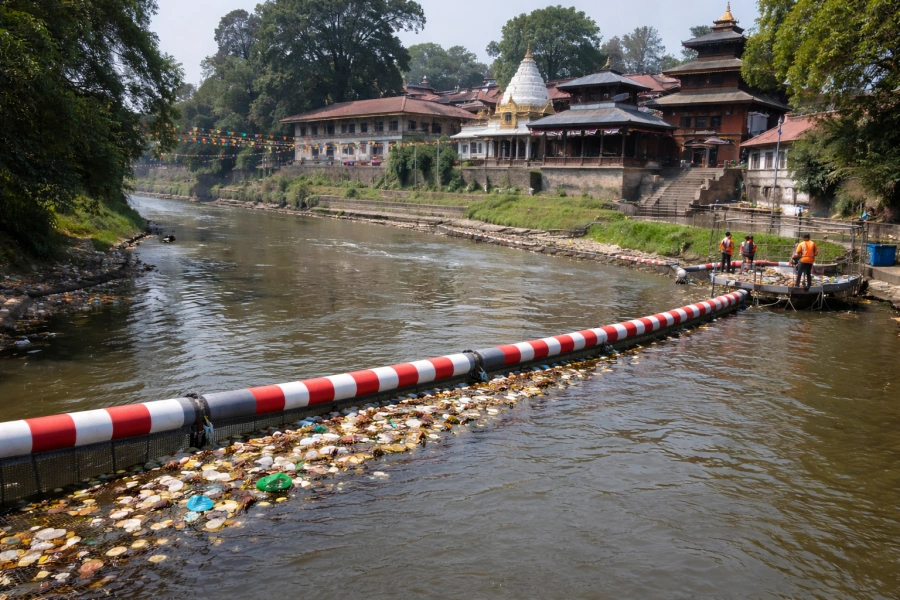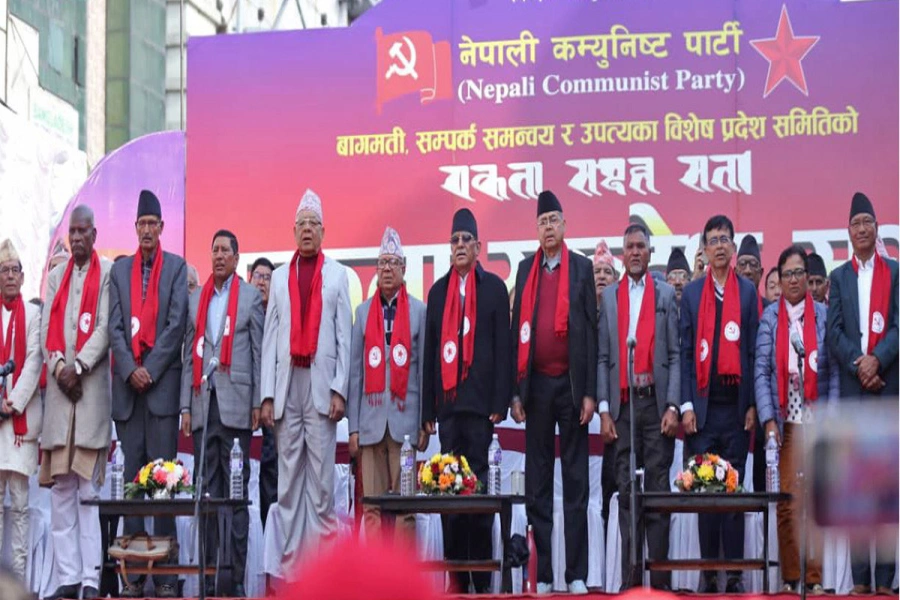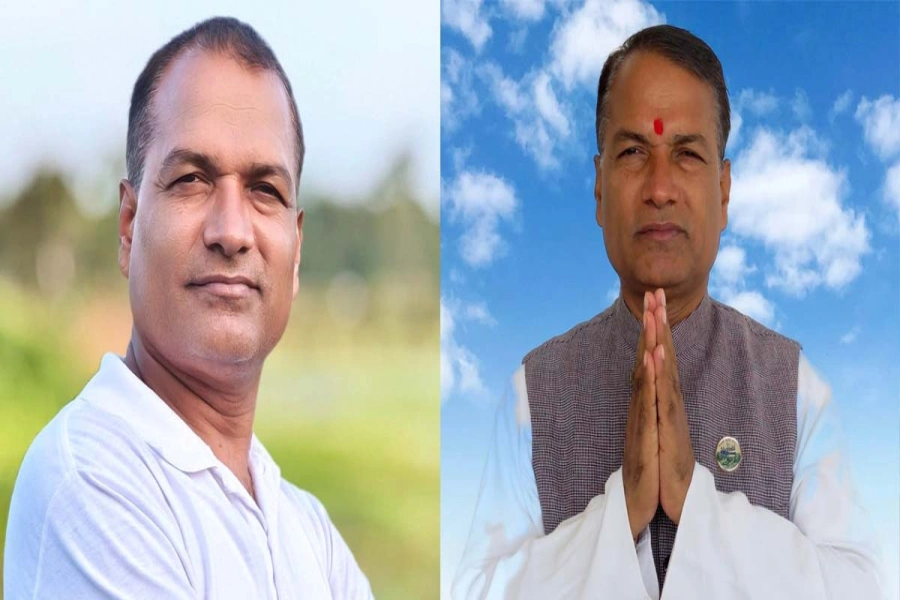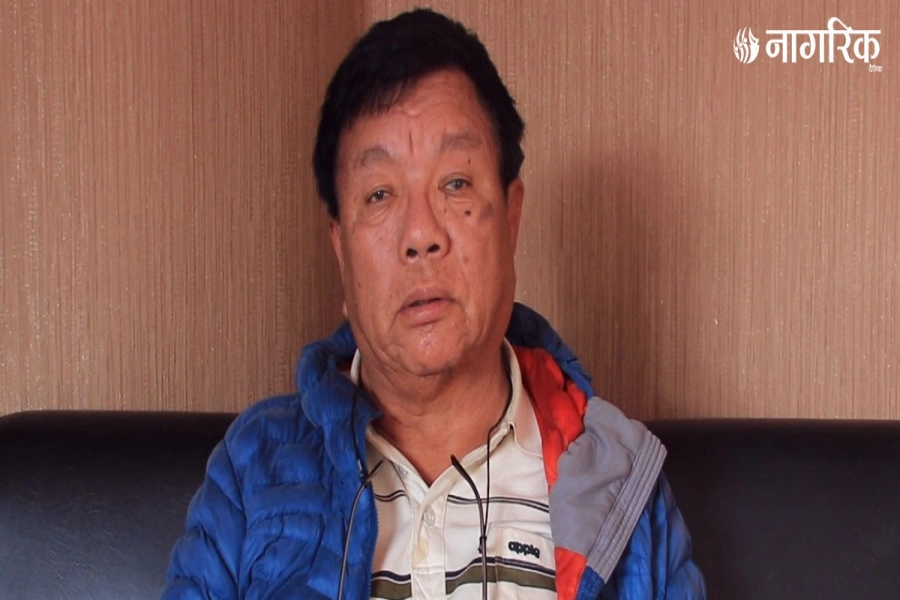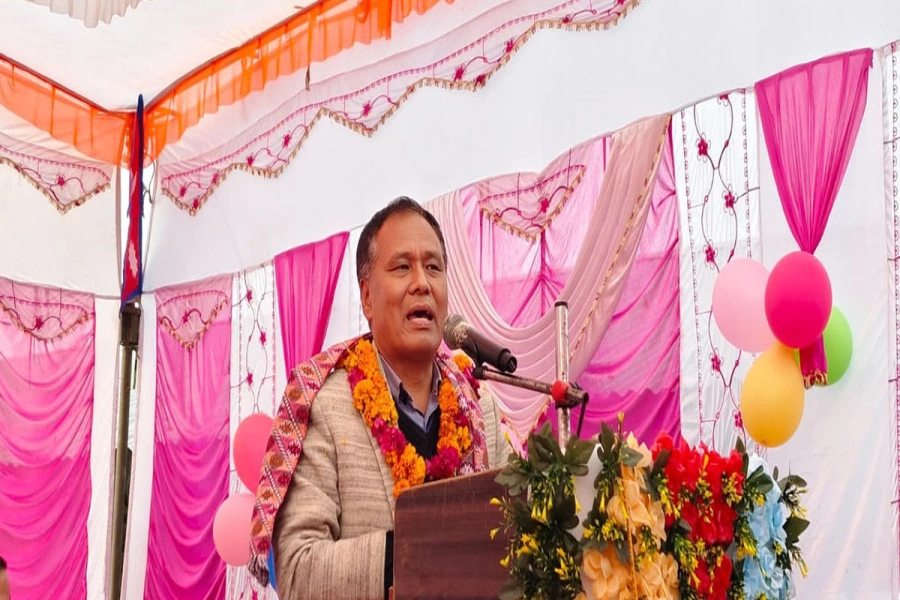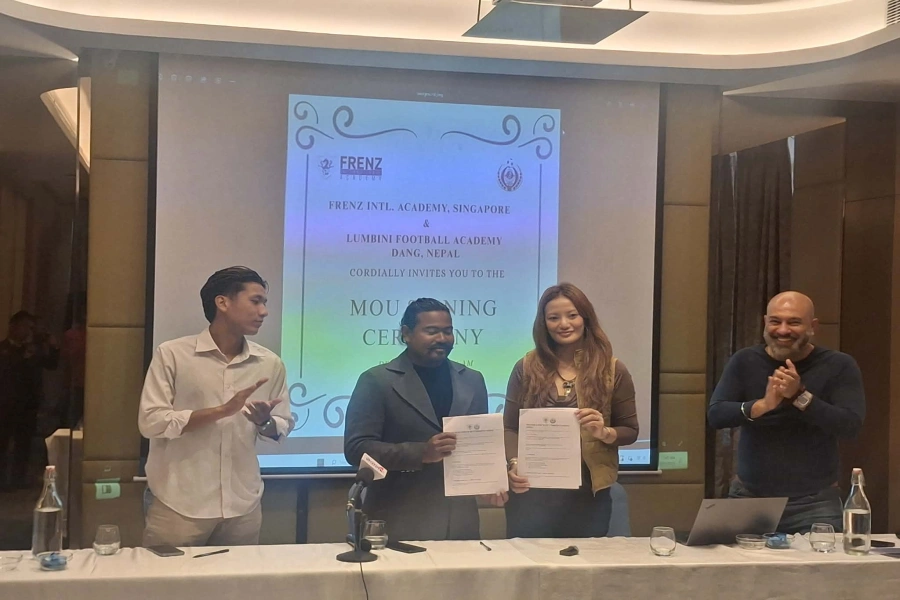KATHMANDU, Dec 2: While the private sector has warned of hitting the streets to exert pressure on Nepal Rastra Bank (NRB) to reduce the interest rates of banks, NRB Governor Maha Prasad Adhikari on Thursday made it clear that the central bank will not change its decision “just because of the protests by the market players”. The chief executive of the country’s central bank, however, expressed readiness to work with the private sector to fix the interest rates if they stand ready for that option.
Governor Adhikari’s remarks come in the wake of the Federation of Nepalese Chambers of Commerce and Industry (FNCCI) warning to launch protests “if NRB does not consider revising its policy to address the problems that have surfaced in the economy”. The Confederation of Nepalese Industries (CNI), another umbrella organization of the private sector, through a press statement on Wednesday, also urged the NRB to be flexible in implementing its monetary tools to ease the ongoing problems.
Addressing a function organized by the Society of Economic Journalists (SEJON) on the occasion of its 26th founding anniversary in the capital on Thursday, NRB Governor Adhikari said that the central bank will remain firm on its decision on issues like working capital loans and interest rates, among others.
Revised interest rate corridor system introduced

“If the private sector is ready to accept NRB’s intervention to fix the interest rates, we are ready to discuss the matter,” Adhikari said, expressing his readiness to work with the private sector to stabilize the interest rates.
While government bodies have been claiming that the condition of Nepal’s economy has improved, the umbrella organizations of the private sector have claimed that the economy faces a serious threat of landing into a crisis. According to the FNCCI and the CNI, excessive hike in interest rates and a heavy fall in aggregate demand have taken their serious toll on the country’s productive sector.
Through the revised monetary policy recently, the NRB reduced the spread rate from 4.4 percent to 4 percent, with the motive to ease the pressure on the rising interest rates. However, it might create some impacts only in the long term and will not help reduce the interest rates instantly, according to the private sector.
Interest rates started to surge mainly after the NRB took a contractionary monetary policy citing the depleting foreign currency reserves and excessive lending by the banks in the unproductive sector. As a result, the base interest rate increased from around seven percent to up to 11 percent in the past one year.
According to the NRB, the foreign currency reserves fell by more than Rs 200 billion in the past year. NRB Governor Adhikari said measures like restricting the import of luxury items and increased interest rate have helped reduce the draining of foreign currencies which has given some cushion to the country’s economy. NRB records show that Nepal now has enough foreign currency reserves to finance imports for more than eight months which once fell below six months.
Shekhar Golchha, president of the FNCCI, said the central bank has to now focus on accelerating economic activities by adopting flexible policies as the country has regained its position in foreign currency reserves. “If it is not done on time, the economy is likely to fall into a serious crisis,” he said.




